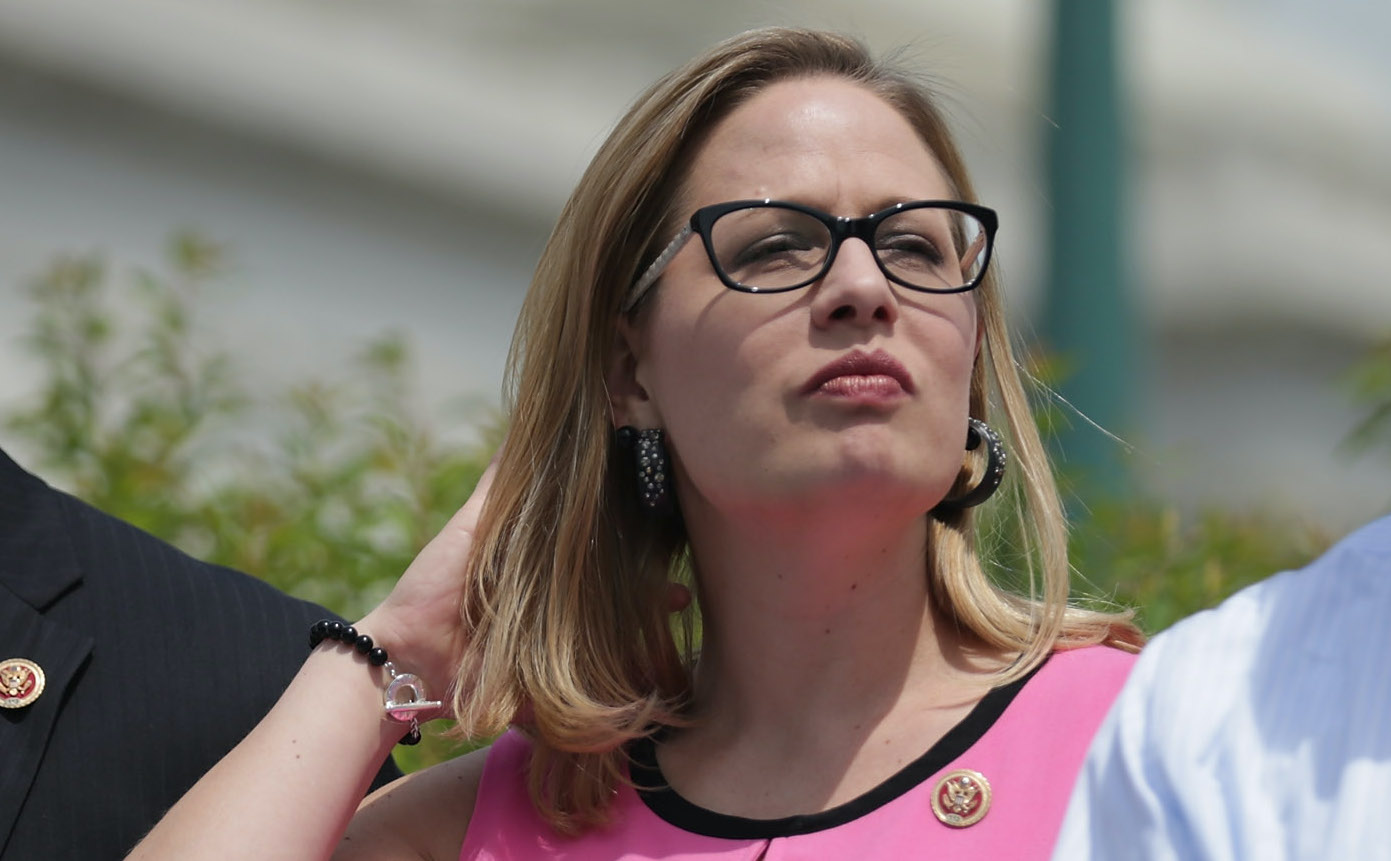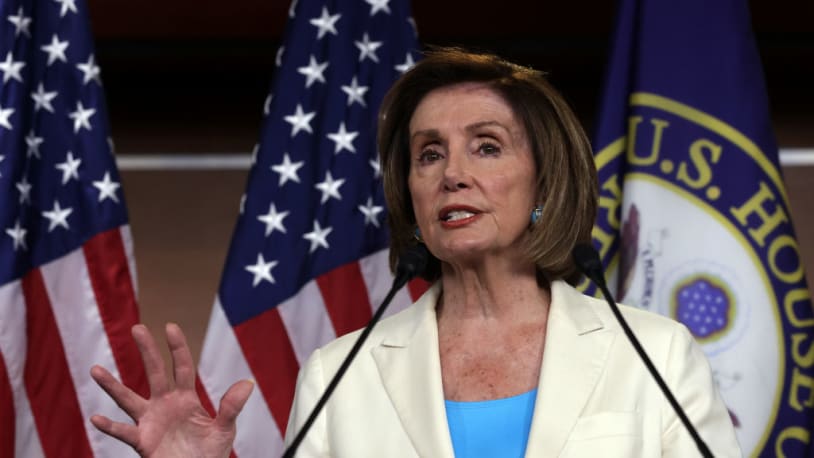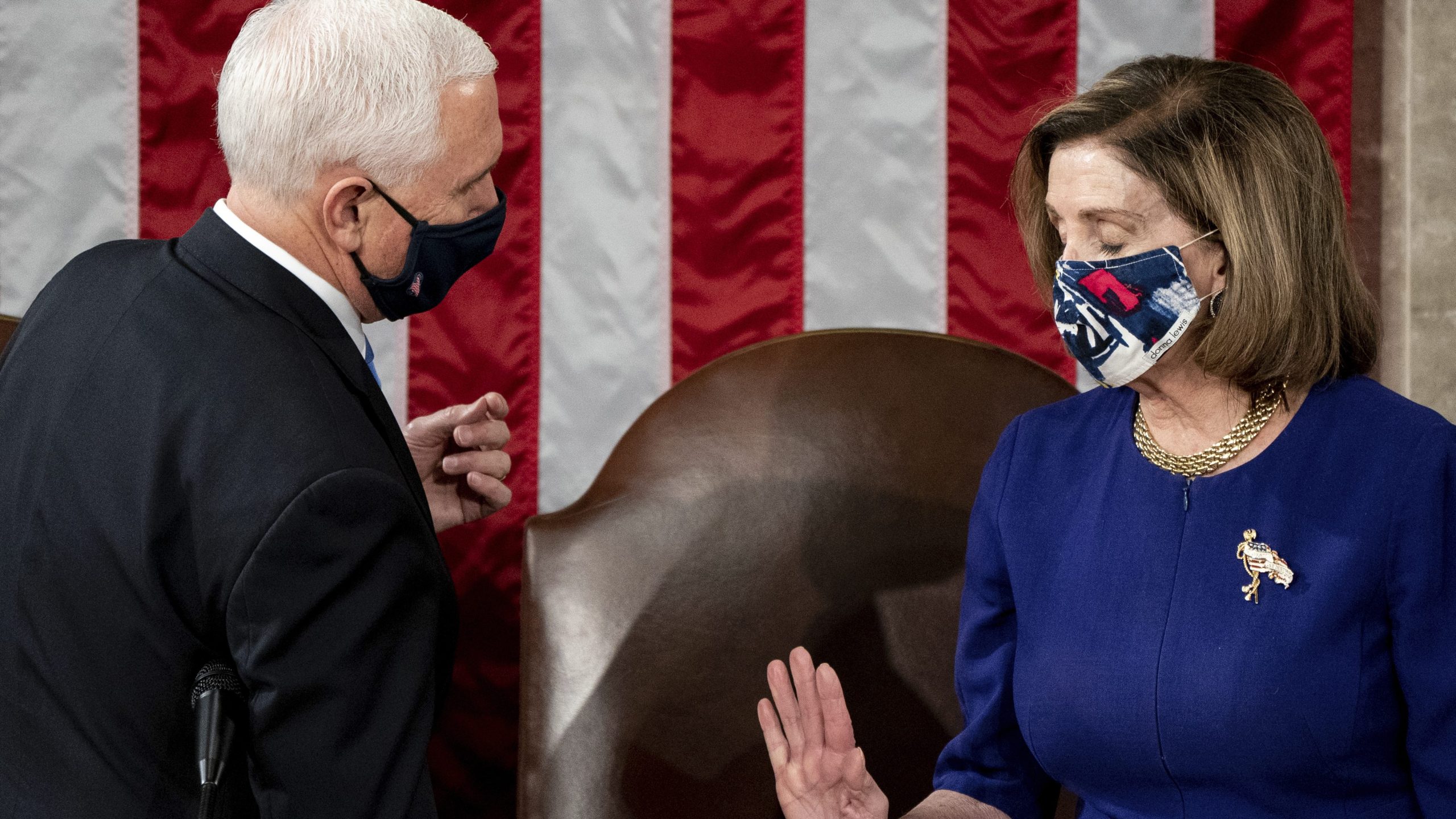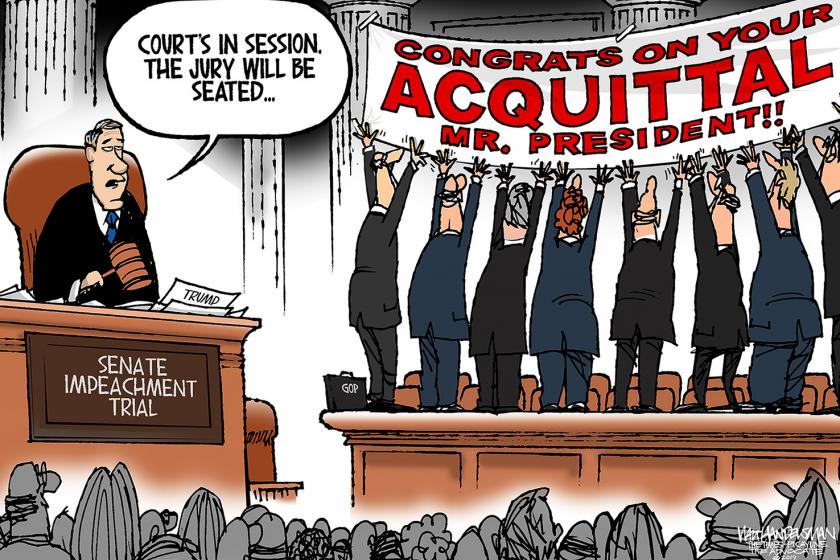It’s been a while since I’ve quoted Charles Pierce.
So, in Wednesday’s installment of How Nothing Gets Done, the starring role appears to be going to Senator Kyrsten Sinema, International Pest of Mystery. She seems to be enjoying her new position as a pointless partisan roadblock jamming up the agenda of a president. It admittedly takes a lot of work, if not much of a conscience. She met a few times with the president on Tuesday and, at the end of the day, she was still sabotaging the entire agenda without giving the slightest indication of why she’s doing it.
Joe Manchin has been opaque about his reasons for clogging the process, but him I can almost understand. He’s in pharma’s pocket because of family considerations, and he’s opposed to the climate provisions of the reconciliation bill because coal. And his devotion to the filibuster probably has a lot to do with both of those. At least he budged, a little, on voting rights. (We all remember voting rights? It was a big deal a while back?) Sinema, however, baffles me. Not only is she throwing sand in the gears of policies the country desperately needs, she seems utterly heedless of how bad she looks doing it.
Last night, Rachel Maddow said that the Arizona Democratic Party is so fed up with Sinema that they threatened her with censure.
In Senator Kyrsten Sinema`s home state of Arizona, the state`s Democratic party is so fed up with her not being on board with the bill that they passed a resolution this weekend part of which reads, quote, if Senator Sinema votes against the reconciliation bill supported by President Biden and the vast majority of Democrats in both the House and the Senate and if she continues to delay, disrupt votes to gut the reconciliation package of its necessary find funding, then the Arizona Democratic Party state committee will go officially on record and will give Senator Sinema a vote of no confidence.
See also Jonathan Weisman in the New York Times, As Sinema resists the budget bill, she is set to raise money from business groups that oppose it. Basically, she’s getting money from business lobbying groups like the National Association of Wholesaler-Distributors who are opposed to tax hikes on big business. At the rate she’s pissing off Democrats and left-leaning independent voters in her state, I’m not sure what good a big campaign war chest will do for her. Maybe her ultimate goal is to be a big-shot corporate lobbyist, after all.
Here’s where we are: House progressives say they insist on passage of the bigger reconciliation bill as a condition of their support for the bipartisan infrastructure bill. It may be that if Sinema and Joe Manchin would both publicly commit to some framework of a reconciliation bill that they will vote for, most progressives would go ahead and vote for the bipartisan bill and not wait for passage. That’s speculation, but possible.
But the latest I’m hearing is that Sinema won’t even talk about the reconciliation bill until after the bipartisan bill passes. That means nothing passes. And it’s making people crazy that she won’t even clearly articulate what she wants, or what she doesn’t want, or what she’ll settle for. She’s just saying no.
Of course, Joe Manchin is a problem also. There appears to be less frustration with Manchin, in some quarters at least, because he is from a state that voted to re-elect Donald Trump by more than 30 points. But Sinema doesn’t have that excuse. And Manchin seems a bit more willing to actually negotiate. Sinema is not negotiating. She’s putting on a one-person my way or the highway act.
Greg Sargent writes with frustration that too much of news media is reporting this issue as if it’s the progressives who are the problem. But it’s the progressives who are actually standing up for President Biden’s agenda. And House centrists don’t seem to understand they are just hurting themselves by not doing the same thing.
Sargent also says that progressives are right to worry that “if Democrats pass the infrastructure bill first, there’s no telling whether Sinema (or Manchin and other centrists) will be there to support something substantial in reconciliation.” History tells us that once the infrastructure bill passes, more conservative Dems will quit negotiating and go home. If there is a reconciliation bill, it will be chopped down to nothing first.
I had a conversation yesterday similar to a number I’ve heard over recent days: a business lobbyist explaining that yes, they want the infrastructure bill real bad and that their optimal scenario is that the infrastructure bill passes and the reconciliation bill goes down to defeat entirely. A separate irony is that most of those people – the ones who appear to have Sinema’s ear – seem entirely unable to grasp the implications for the Democratic party if that is indeed the final outcome. It will rip the Democratic coalition apart. Of course, in general, that’s not their concern or their problem. But it certainly means all the self-styled “moderates” they’re working with now will go down to defeat – both because of primaries but also just as the natural consequence of a Democratic rout. More business friendly Democrats in blue seats will also get replaced by more progressive members. I am consistently surprised how people whose whole job is politics, supposedly, seem to have so little grasp of its basic functions.
In other words, it’s the Dem House moderates in swing districts who have the most to lose if the reconciliation bill is blocked. Most of the progressives — although not all — are in safe Dem districts. The moderates more than the progressives need to have some big thing they can show voters they have accomplished. The infrastructure bill, by itself, is not likely to be it. As Rachel Maddow said last night, “You know, the bipartisan infrastructure bill by itself doesn`t really do much. It`s mostly a series of giveaways to the fossil fuel industry.” I understand it’s also the case that even if it passes this week, most of the projects the infrastructure bill would fund won’t be underway by this time next year. To midterm voters, that will sound like one more empty promise.
Rep. Katie Porter, a progressive in a swing district, was on Chris Hayes’s show last night making it clear where she stands.
I plan to vote no on the Infrastructure Bill until we have an assurance to the American people that the Build Back Better plan will pass. Like I said, we can`t leave anybody behind. The American people work in lots of different industries and lots of different kinds of occupations, they face lots of different challenges not just roads and bridges and airport and transit, but they face challenges regarding child care, challenges regarding the greening of our — the need to green our economy, challenges regarding college costs.
So, we need to see an assurance from the Senate that we`re going to be able to pass President Biden`s agenda. And that means all of the different pieces that the American people elected him and us to do.
The infrastructure bill pretty much became Kysten Sinema’s vanity project only to get her support on the reconciliation bill. Progressives don’t like it (see above about giveaways to the fossil fuel industry) and are only promising to vote for it for the sake of the larger bill. I don’t think there’s any chance of it passing the House this week, or ever, until Sinema (and Manchin) get a clue.
Update: Some excellent commentary by Sarah Jones at New York magazine.
Joe Manchin of West Virginia and Kyrsten Sinema of Arizona appear to relish the power they wield over the rest of the party. They are, in effect, holding the president’s priorities hostage to their personal whims. That’s not a new story in politics. But their stubbornness in the face of contemporary challenges reveals the bottomless emptiness of their brand of centrist politics. …
… News that she is about to raise money from business interests that oppose the budget bill has invited speculation that she is doing her donors’ bidding. Meanwhile, the budget’s climate provisions disturb Manchin, who makes a sizable profit from the coal industry. Perhaps plain old corruption is at work here.
But there is more to it than that. Everyone involved in this saga, from President Biden down, is making a moral choice. The president’s budget is, like all presidential budgets, a public expression of the administration’s values. Sinema and Manchin have also expressed their values in public, even though these are cloaked in boilerplate rhetoric about inflation and taxes. Sinema’s donors are a reflection of her personal priorities. The same is true for Manchin when it comes to the profit motive. They’ve chosen their benefactors, not their voters, as their real constituency.
Jones goes on to point out that the provisions in the Build Back Better bill are widely popular across much of the political spectrum, and that “As countless wonks have pointed out, however, the bill is largely paid for and should have minimal effect on inflation and the national debt.” I doubt there is any political risk for a Democrat, even Joe Manchin, to support it. Jones concludes,
Some version of the bill may well pass, but these tortured negotiations have exposed the barrenness of their position. Sinema and Manchin have a way of doing politics that redounds to no one else’s benefit, and sometimes not even themselves. They are risking Biden’s legacy, the prospects of their party, and the well-being of the American public for reasons they can’t even articulate. If only they were capable of shame.





